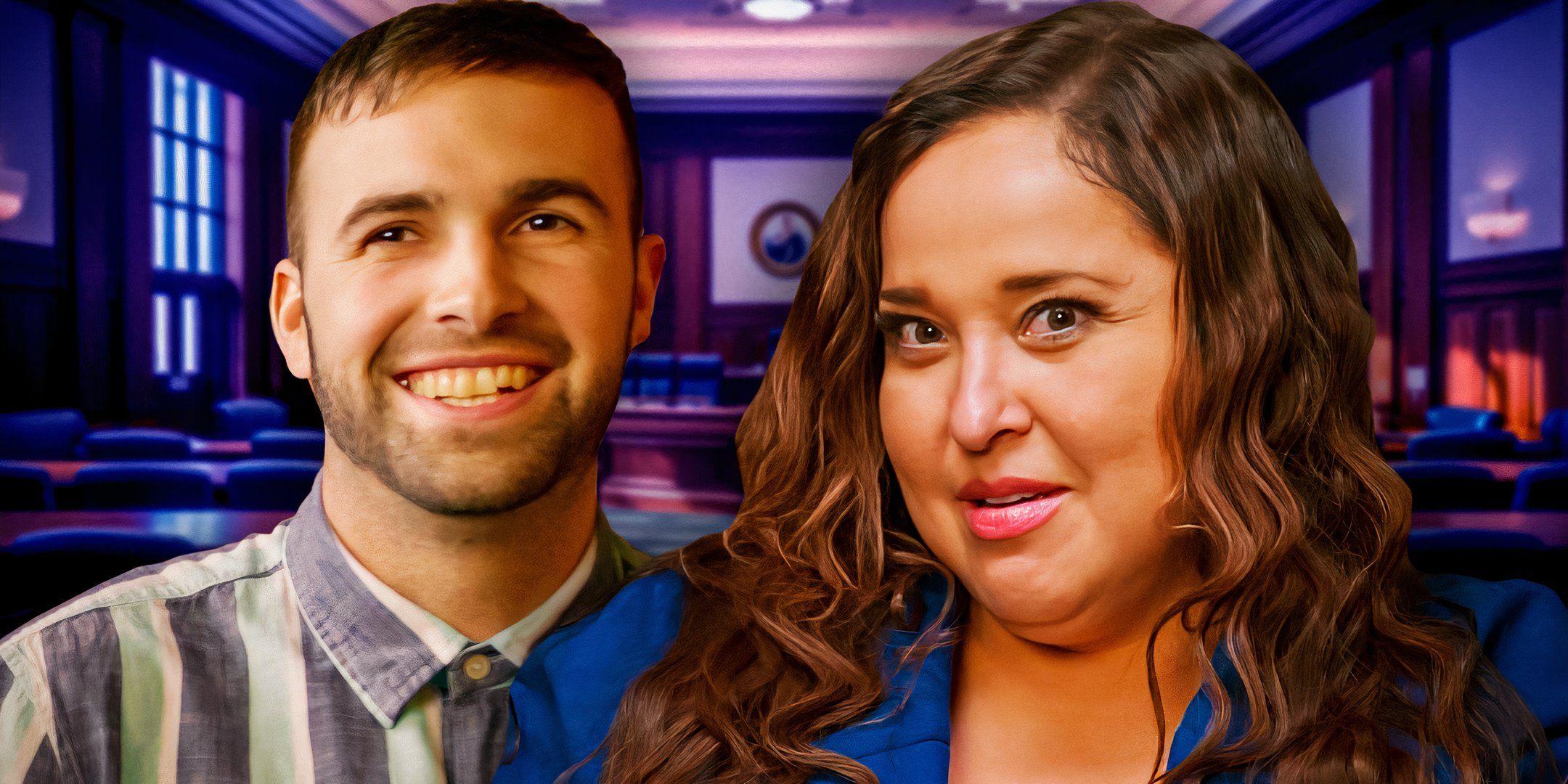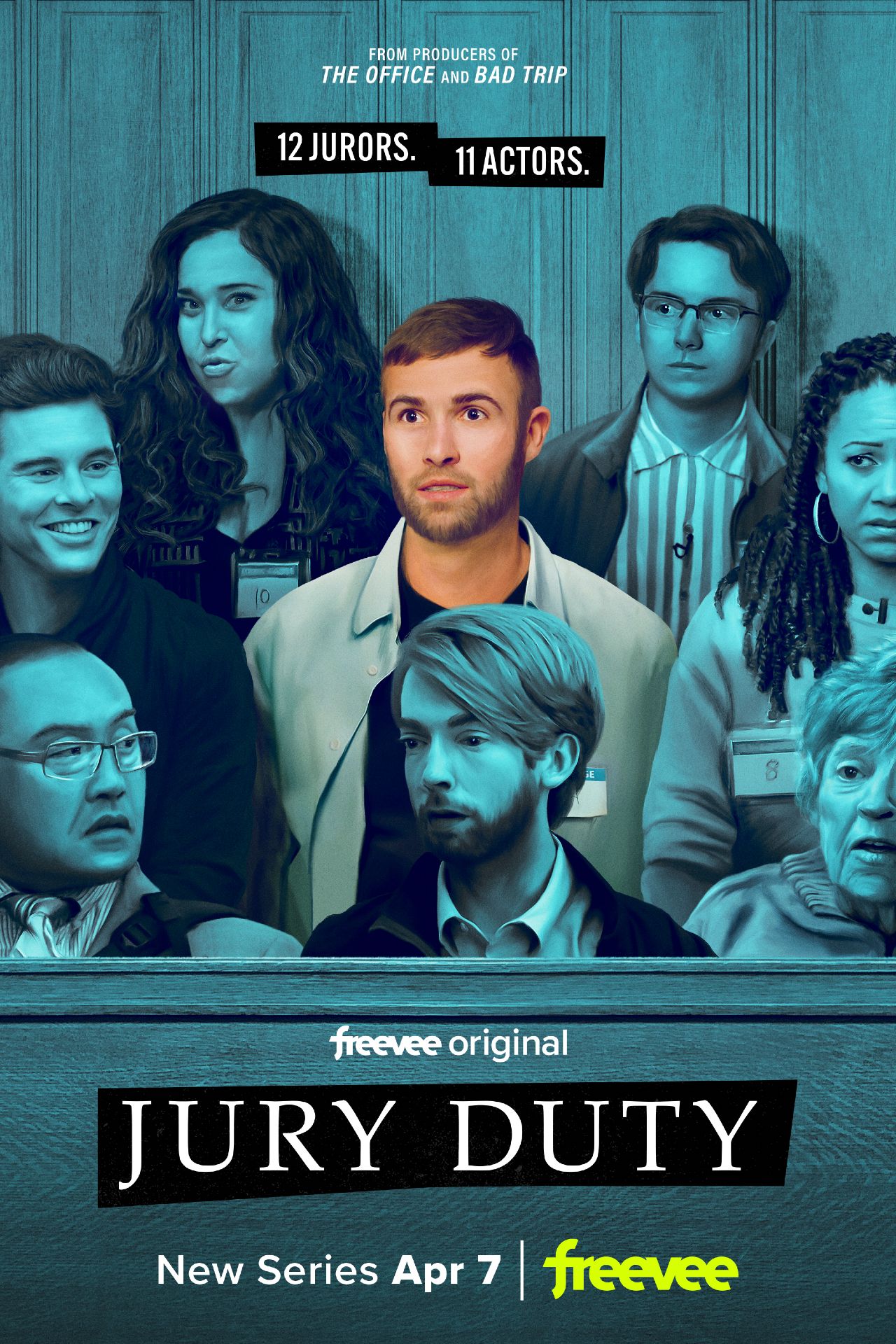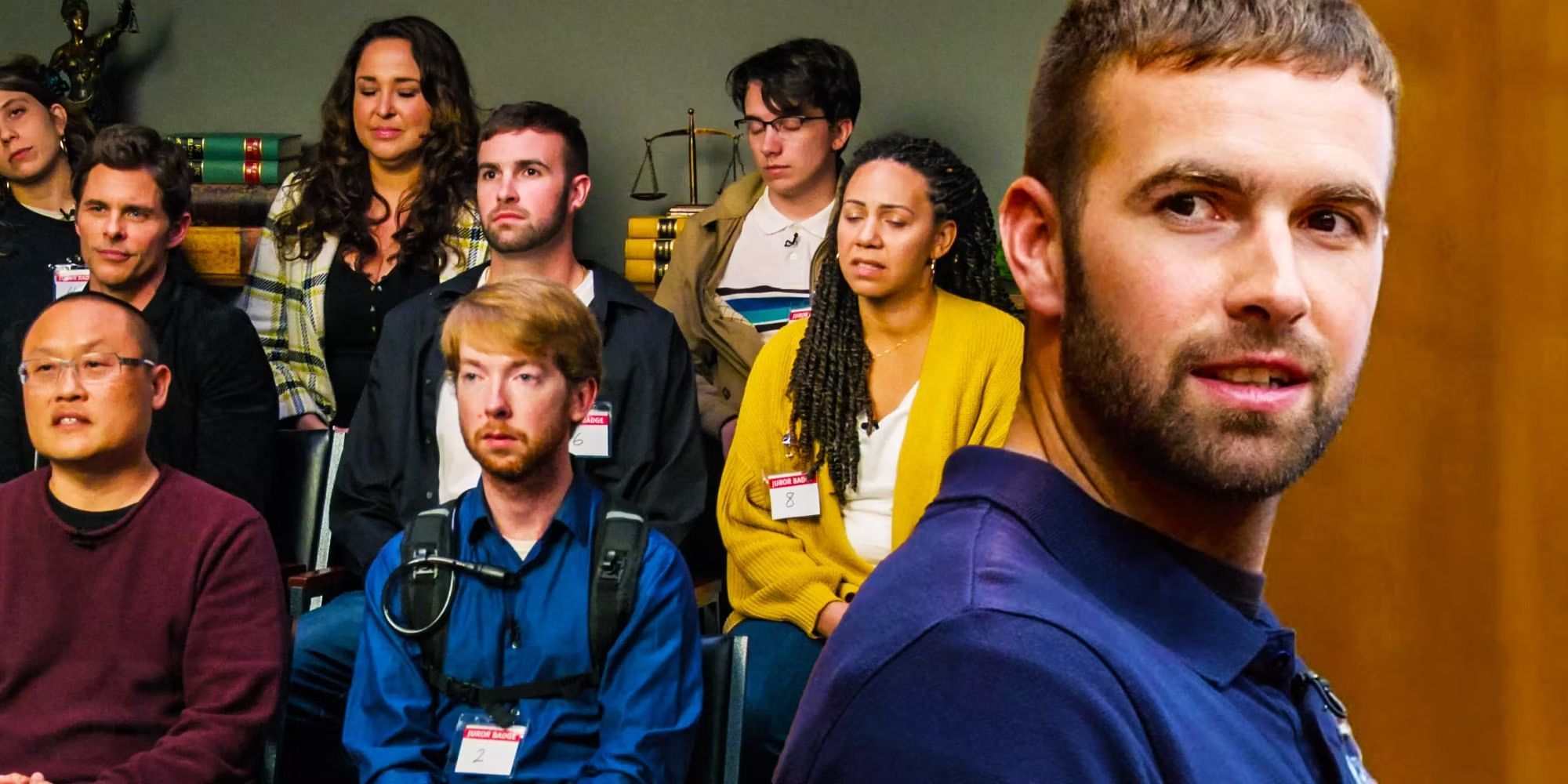Exploring **the Jury Duty Cast**: Your Role In Justice
Have you ever stopped to think about what goes on behind the scenes in a courtroom, especially when it comes to who decides the outcome of a case? It's a pretty big deal, really. We're talking about the group of people who hold a lot of responsibility, listening to all the facts and making some truly important choices. This group, often called the jury, plays a central part in how justice works in our communities, and understanding who they are and what they do is, in a way, quite fascinating.
For many, the idea of getting a jury summons can bring up a lot of questions. You might wonder how names are picked, what the whole process involves, or even what it means to be part of such a significant group. It's not just about showing up; it's about being a part of something that helps keep our legal system fair and balanced. So, knowing more about **the jury duty cast** can help you feel more ready, should that summons ever arrive at your door.
This discussion will pull back the curtain on this vital civic activity. We'll look at how people get chosen, what their duties involve, and why this system is such a cornerstone of our way of life. It's a chance to see how ordinary people come together to do something quite extraordinary for the common good, and how it all works, basically.
Table of Contents
- What Exactly is **the Jury Duty Cast**?
- The Selection Process: How **the Jury Duty Cast** Comes Together
- What Does **the Jury Duty Cast** Actually Do?
- Important Facts About Serving on **the Jury Duty Cast**
- The Unique Place of **the Jury Duty Cast** in the US
What Exactly is **the Jury Duty Cast**?
The Heart of the System
At its core, a jury is a group of people who have taken an oath. They come together to listen to information, figure out what really happened, and then make a decision about a legal matter. This group, or **the jury duty cast**, is given the job of looking at all the evidence and facts that a court presents to them. Their main purpose is to give an impartial verdict, meaning a decision that is fair and unbiased, which is pretty important for everyone involved.
Sometimes, this group might also be asked to help decide a penalty. This happens after they've made a finding about what occurred in a case. So, they don't just decide guilt or innocence; they can also have a hand in the consequences, which is a lot of responsibility, you know.
A jury, in some respects, is a body of people chosen for a short time from the citizens of a specific area. These individuals are given the power to bring charges against someone for a public offense, or to try a question of fact in a case. This means they look at what happened, not just the rules about it, and decide what is true, basically.
Who Gets the Call?
Being asked to serve on a jury is something that is required for citizens. It's not really a choice, in a way. The names of people who might be called for jury service come from several different places. This helps make sure that the group of potential jurors is wide and varied, reflecting the community it serves. So, it's not just random names, you know.
One of the main places names are taken from is voter registration records. If you've registered to vote, your name could be on the list. This makes a lot of sense, as voting is another civic activity, and it tends to be a good way to get a lot of people from all walks of life.
Another source is records from the franchise tax board. This includes people who pay taxes, which covers a very wide part of the population. It's another way to gather a broad pool of potential jurors, ensuring that the selection process is fair and comprehensive, which is very important.
And then there are records from the Department of Motor Vehicles, or DMV. If you have a driver's license or state ID, your name might be pulled from here too. This casting for **the jury duty cast** is quite thorough, making sure that many different people have a chance to serve, so it's almost a cross-section of the community.
The Selection Process: How **the Jury Duty Cast** Comes Together
From Records to Courtroom
The journey for **the jury duty cast** begins long before anyone steps into a courtroom. It starts with those lists of names from voter rolls, tax records, and DMV information. These lists are used to create a large group of people who could potentially be called for service. It's a system designed to be as fair as possible, you know.
When it's time to choose a jury for a specific case, a smaller group of people from this large pool is called to the courthouse. This is where the selection process, sometimes called "voir dire," begins. Here, both sides in a case, like the lawyers, get to ask questions to the potential jurors. They want to make sure the people chosen can be impartial and fair, which is a really big deal.
During this questioning, lawyers might look for any biases or reasons why a person might not be able to decide a case fairly. It's not about finding the "right" answer, but about finding people who can listen to all the information with an open mind. So, it's a careful process, actually, to make sure the jury is truly neutral.
The Role of the Court
The office of jury administration has a very important job. They are responsible for making sure there's a good number of qualified people ready to serve as jurors. Their work helps to protect a basic right for everyone: the right to have a trial decided by a group of people who are fair and unbiased. This office does a lot of behind-the-scenes work to keep the system running, basically.
For example, the official website of the Superior Court of Los Angeles County offers information about jury service. This kind of resource helps people understand what to expect and what their responsibilities are. It's a way for the court to communicate clearly with citizens, which is pretty helpful.
You can often find handbooks and instructions for serving on a jury from court resources. These guides explain things like criminal and civil jury instructions, and other details for people who are serving. For instance, the Office of Illinois Courts provides such resources, making it easier for people to understand their role. This support is, in a way, vital for those who are called to serve.
What Does **the Jury Duty Cast** Actually Do?
Listening and Deciding
Once selected, **the jury duty cast** has a very clear set of tasks. Their main job is to listen very carefully to all the testimony presented in the courtroom. This means paying close attention to what witnesses say, how they say it, and all the details that come out during the trial. It's a lot of listening, you know.
Beyond just listening, jurors also review all the evidence that is shown to them. This could be documents, pictures, videos, or even physical objects. They need to look at everything with a critical eye, trying to piece together the true facts of the case. It's like putting together a puzzle, in some respects, to see the whole picture.
After all the evidence has been presented and all the arguments have been made, the jury goes to a private room to talk things over. This is where they discuss everything they've heard and seen. Their goal is to make findings of fact, meaning they decide what actually happened based on the information. This part is, arguably, the most important bit of their job.
Finally, they come to a decision, which is called a verdict. This verdict is then given to the court. For example, a jury might deliver a verdict of not guilty, as has happened many times. The members of the jury then often leave the court, sometimes even with a police escort, which shows the significance of their role, and the attention it draws.
The Judge's Role vs. The Jury's Role
It's important to understand that the jury and the judge have different, but equally important, jobs. The jury is there to decide the facts of a case. They are the ones who determine what is true based on the evidence they are shown. This is their primary responsibility, basically, to figure out the story of what happened.
The judge, on the other hand, decides questions of law. This means the judge is in charge of how the rules of the court apply to the case. For example, the judge decides whether certain pieces of evidence can be shown to the jury, or if they are allowed under the rules. This ensures that the trial follows proper legal procedures, which is very important.
So, while jurors listen to testimony, look at evidence, and make decisions in both civil and criminal trials, the judge is the one who explains the principles of the law to them. The jury then uses these legal principles, as explained by the judge, to help them decide the facts of the case. It's a partnership, in a way, to ensure a fair trial.
A jury is a group of people given the power to find facts and give a verdict for a trial. The judge, then, handles all the questions about the law. This separation of duties helps to keep the process fair and makes sure that both the facts and the rules are handled correctly, which is a big part of how our system works.
Important Facts About Serving on **the Jury Duty Cast**
Frequency and Requirements
You might wonder how often you could be called for jury service. Well, it's possible that service could be required as often as once per year. This means that if you serve one year, you could potentially be called again the very next year. It's not a guarantee, of course, but it is a possibility, which is something to keep in mind.
The idea behind this is to ensure that there's always a fresh pool of citizens available to serve. It helps to spread the responsibility of jury duty around the community, so it doesn't fall on the same people over and over again. This system helps to keep the process fair and democratic, which is pretty good, you know.
The requirements for serving are generally tied to being a citizen, being of a certain age, and living in the district where the court is located. These are basic ways to make sure that the people who serve are connected to the community and can legally perform the duties. It's all about making sure the right people are there, basically.
Who Can't Serve?
While most citizens are eligible to be part of **the jury duty cast**, there are some exceptions. For instance, police officers are not usually allowed to be on a jury. There are reasons for this, often related to their regular work and potential biases that might come from it. It's about keeping the jury as neutral as possible, you know.
The idea is to avoid any situation where a juror's background or job might make it hard for them to be completely impartial. This rule helps to protect the fairness of the trial for everyone involved. It's a safeguard, in a way, to ensure that the verdict is based purely on the evidence presented in court.
Other groups might also be excused or disqualified, depending on the laws and practices of a particular court or state. These rules are put in place to ensure that the jury can do its job without any outside influence or conflict of interest. It's all part of making sure justice is served, which is very important.
The Unique Place of **the Jury Duty Cast** in the US
A Cornerstone of Justice
It's worth noting that the United States is, in some respects, the only country that relies so heavily on the jury system in the way it does. This makes **the jury duty cast** a truly special and distinct part of our legal tradition. It's a historic legal institution where ordinary people, who are not legal professionals, get to help decide cases that come to trial. This is a pretty unique thing, actually.
The specific features and powers of a jury can change depending on the laws and practices of different places, but the core idea remains. It's about citizens participating directly in the justice system. This participation is a fundamental aspect of our democratic process, ensuring that the power to decide someone's fate isn't just in the hands of a few officials. So, it's a powerful idea, really.
This system of a jury, whether it's a grand jury or a petit jury, is a group of people who are sworn to give a true verdict based on the evidence in a case presented in a court of law. It's a core belief that a group of citizens, listening together, can arrive at a fair and just outcome. This belief is a big part of what makes our legal system what it is, you know.
The jury system, with its reliance on everyday people, acts as a check and balance within the legal system. It provides a human element to legal decisions, bringing community values and common sense into the courtroom. This means that decisions are not just based on strict legal interpretations, but also on what a group of people, like your neighbors, believe is fair and true. Learn more about jury service on our site, and link to this page Understanding Your Civic Role.
It’s a system that has been around for a long time, and it continues to be a vital part of our justice. The idea that ordinary citizens can come together and make such weighty decisions is a testament to the trust placed in the community. It's a way for people to actively participate in maintaining fairness and order, which is pretty cool, when you think about it.
For more general information on the role of juries in legal proceedings, you can refer to resources like the United States Courts website, which offers insights into the federal jury system. This helps to show how widespread and fundamental the jury system is across the country, basically.
Frequently Asked Questions About **the Jury Duty Cast**
Who makes up a jury?
A jury is made up of a group of people, usually twelve, who are citizens selected from the community. These individuals are sworn to hear all the information in a case and then make a decision based on what they've learned. They are ordinary people, not legal professionals, who come together for a specific trial, which is pretty interesting.
How are people chosen for jury duty?
People are chosen for jury duty from lists that include voter registration records, franchise tax board information, and DMV records. From these lists, potential jurors are called to the court. Then, during a process called "voir dire," lawyers ask questions to pick the final group of people who will serve on **the jury duty cast** for a specific trial. It's a careful process, you know, to ensure fairness.
What is the main job of a jury?
The main job of a jury is to listen to all the evidence and testimony presented in a trial. They then make findings of fact, meaning they decide what truly happened in the case. After discussing everything, they deliver an impartial verdict, which is their decision on the legal matter. Sometimes, they might also help set a penalty, which is a big part of their role, really.

Jury Duty Cast & Character Guide

Jury Duty Cast & Character Guide

Jury Duty Cast & Character Guide